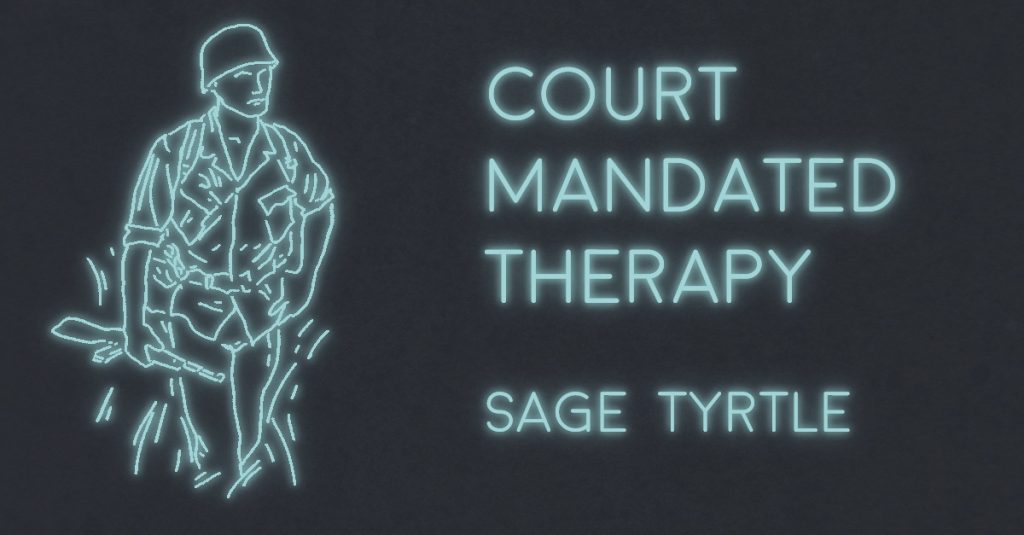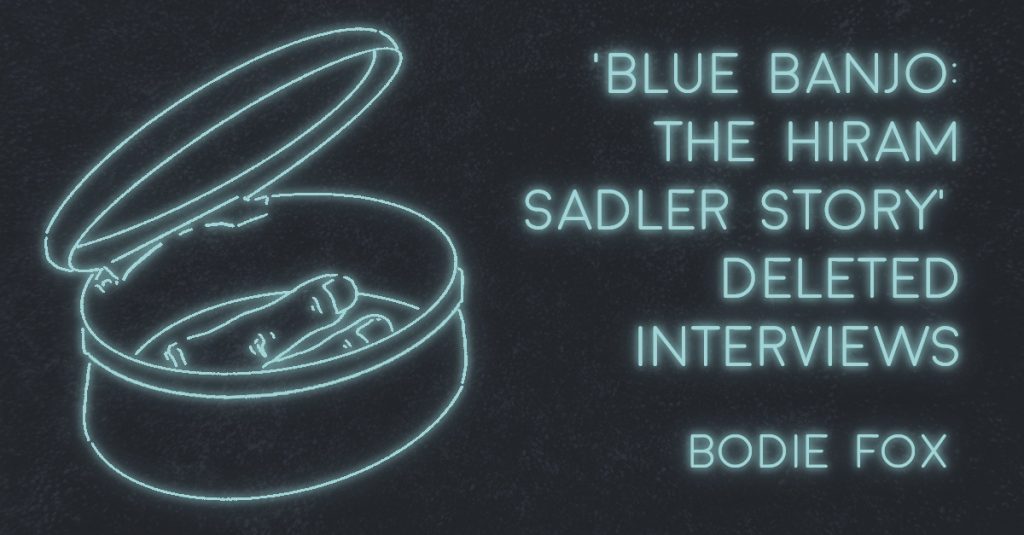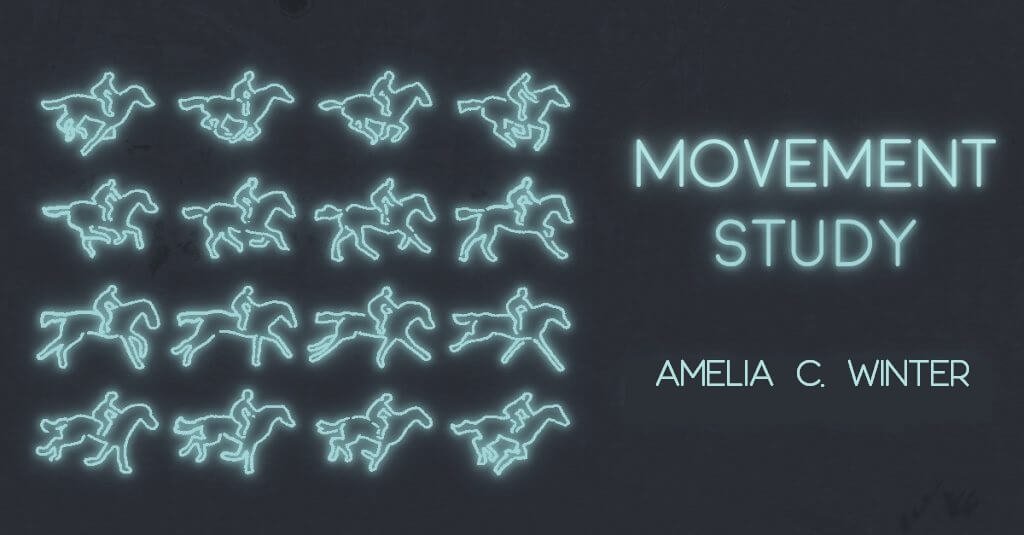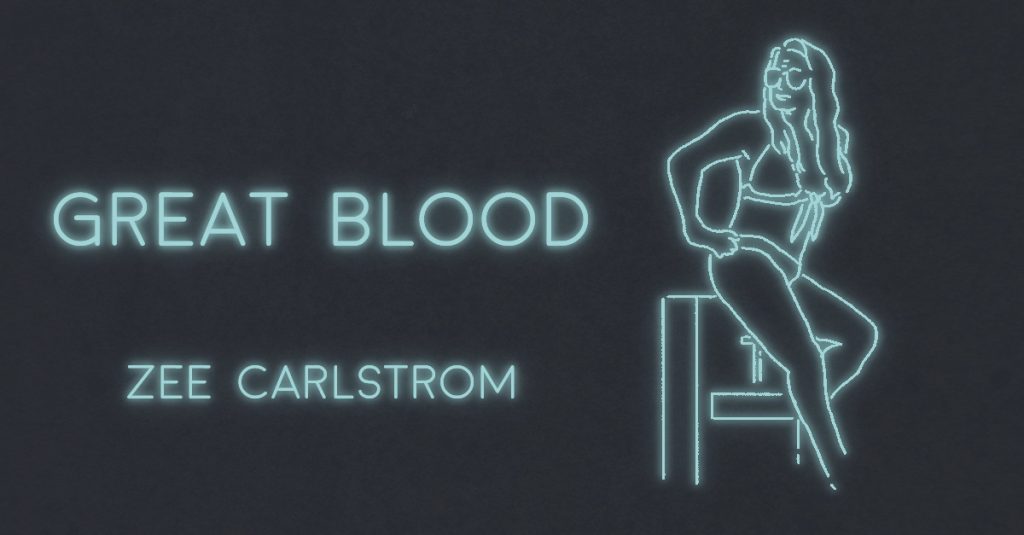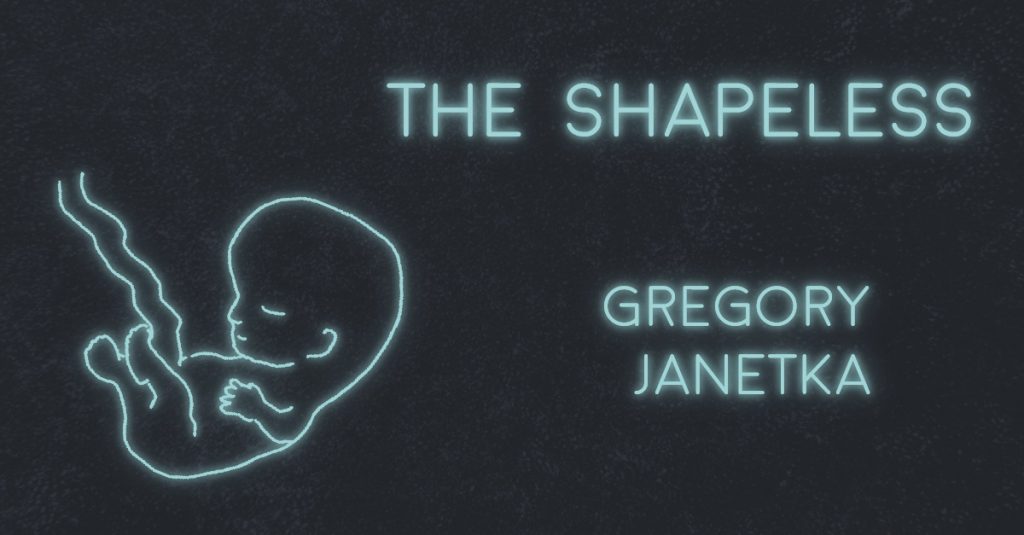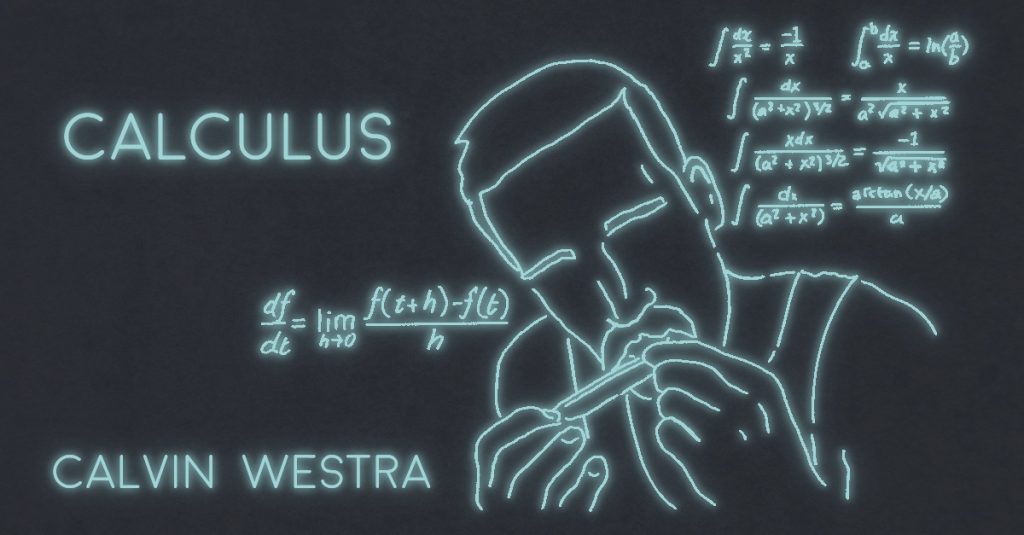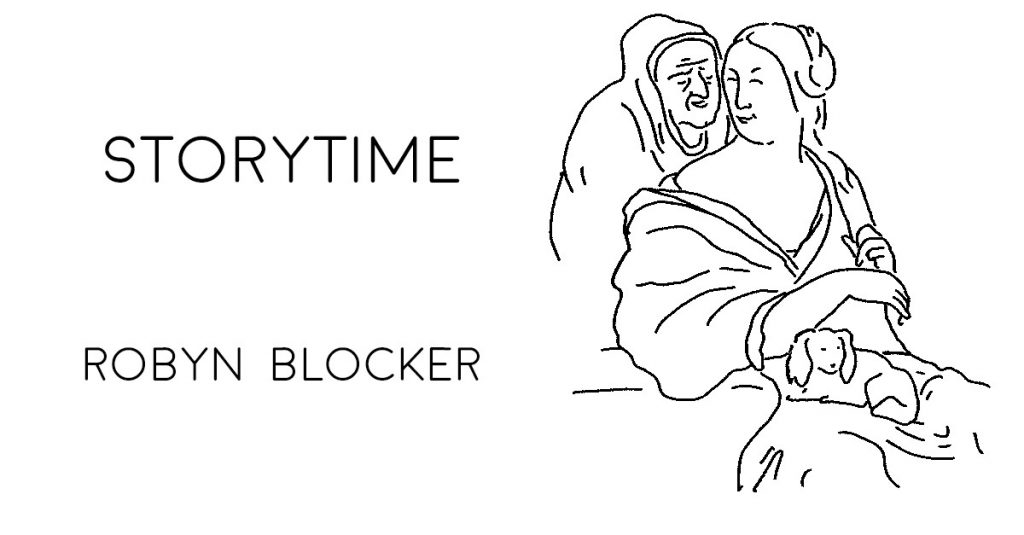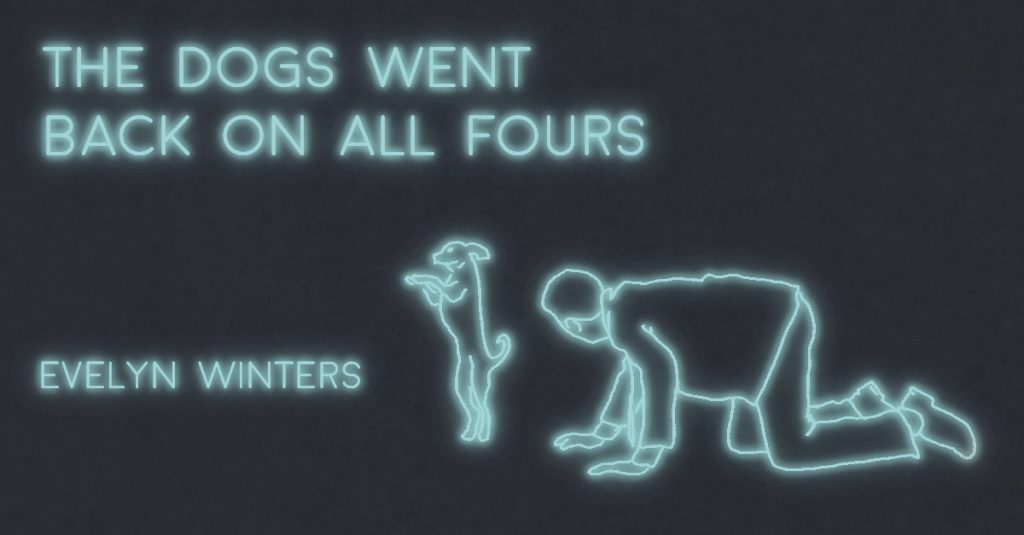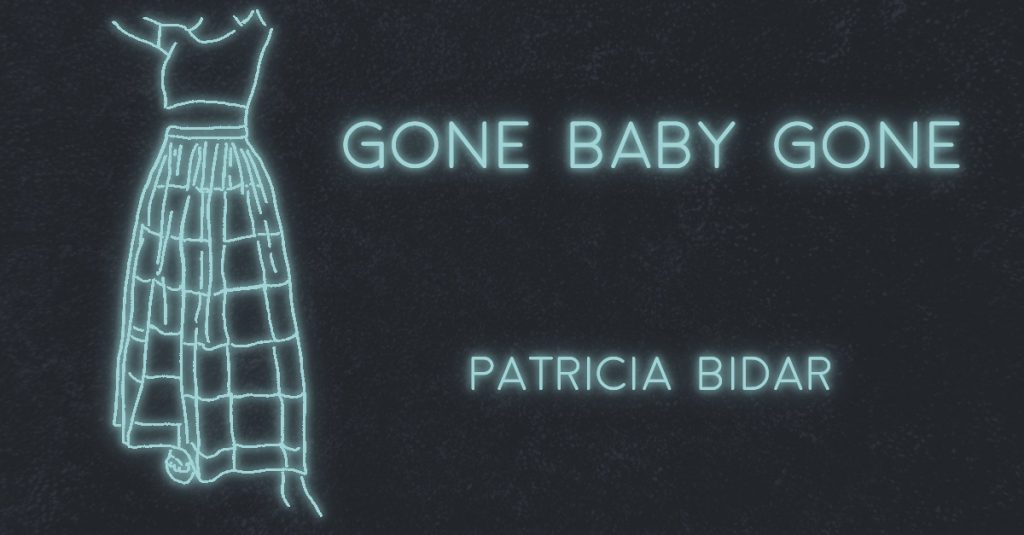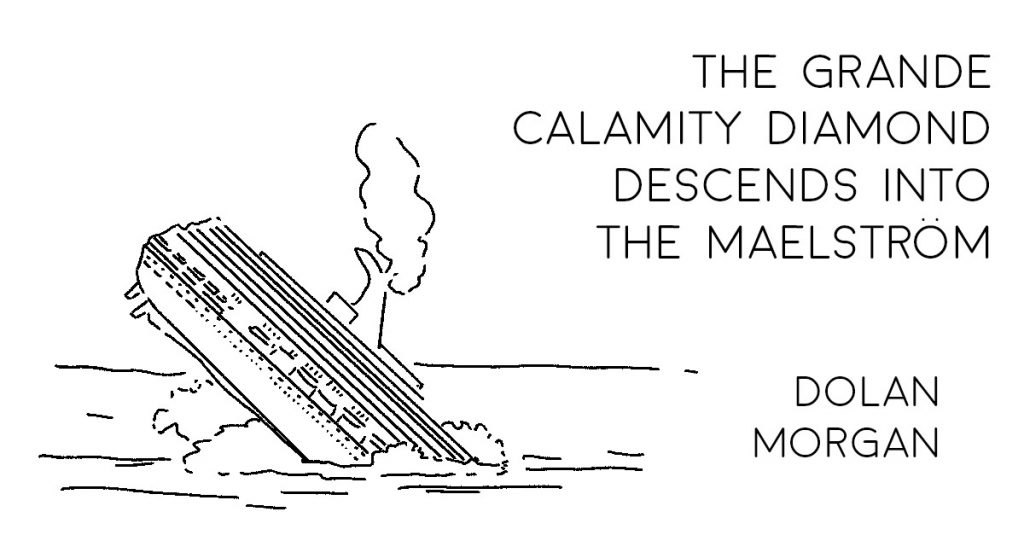What’s up, beautiful people?
So y’all know how when you type the first couple letters of an email address and a list of contacts pops up—all the ones that start with that letter?
Like, imagine it’s “D” for Dave, the guy you’re hooking up with. Not Hot Dave with the boat or Quik Lube Dave with the ink, but the Dave whose brother OD’d back in ’99 at the rock pit behind the Big House. Right, Sad Dave. The Dave you send naked pictures to as an inside-joke cue that you want to buy from him. (Rumor alert! It was Pollie Carsen that gave Sad Dave’s brother that heroin!)
Tonight you’re on the edge. You’ve deprived yourself of spontaneous self-destruction for eighty-nine days and can’t take another minute of good choices that only feel good because they’re hard. You ache to raise hell you’re too old for: to bust windows and noses, floor pedals, run reds, blaze bowls, break hearts, tag bridges and burn them and screw in the ashes.
You’re gonna send Sad Dave some spank bank selfies, so you type “D,” but here’s what happens: since you’re always trying to do ten tasks at once to keep your mind off wonderful things that’ll kill you, you somehow get the cursor positioned one contact name below Dave’s, on the email of your daughter, the YouTube influencer who’s gotten big telling stories about her life, her day, her peeps, her fam, her world, and the social injustices in it. People love her for her self-awareness, her willingness to own her flaws, her unending desire to do the painful dirty work of fixing them.
Like Dave, her name starts with D. You were seventeen, still a silly romantic, when you had D’Laynie, and you wanted all your future kids to be D’s just like their daddy. He was not named Dave, but you’ve forbidden yourself from speaking his name ‘cause it’ll make you think of him, and that’ll make you cry. (Rumor alert! Pollie Carsen gave D-Boy herpes and smoked his first two child support checks before he died in a 4-car pileup on I-35!)
You think, Hoooo girl, do NOT send those pics to D’Laynie. Think she hates you now? Just wait. You start to fix your error, to click UP back to Dave’s name. But of all the bad choices you could make right now, he’s the familiar one. What you want is to shut your eyes, squeeze your nose, and cannonball down into a moment whose depth you cannot gauge from this height.
You close your eyes and click a name. Open eyes, but don’t look at who’s getting the pictures. Just SEND.
You’ve maybe just bashed your life out on a new kind of rock bottom, and you feel more alive than you have in months. You sit back, take a selfie, delete it. Habit. (Your grandma Belle-Ruth always asks, “Who you trying to erase, girl?”) Finish your Diet Coke, gargle, go to bed. And before sleep comes, think, There’s 90 days clean again, Pollie Carsen. Aren’t you getting tired of starting over?
*
Late morning. Wake up. Shit’s hit the fan. Four missed calls from Belle-Ruth. One voicemail. She says, “Pollie, honey, did you… say… something to D’Laynie? She’s gone and made a…You know what? Just come over.”
Heart pounding, you check your inbox. Nothing. For one moment, you think the pics went to Sad Dave after all. You check your Sent mail. Wrong. She got them.
You go to D’Laynie’s YouTube page. She has 100K subscribers and a new profile pic, a dramatic ¾ silhouette of herself on the balcony of the Austin apartment she shares with two friends. Looking good: sunlight glowing on honey-golden skin. Tall and twiggy. Red lips, teeth perfect. Cold-shoulder white blouse and huge, yellow-mirrored shades. Great hair. His hair, his general look. No shit. As if your radioactive redheadedness could have elbowed its way past D-Boy’s black curls. Recessive genes, you think. Recessive. Recede. Back away. Back away from your baby in every way and stay far, far away.
What happened was this: you fucked up bigly. Hid meth in her diapers, left her alone while you partied. Shit like that.
When your mom adopted her and kicked you out, you went on a grand couch-surfing tour of all the drug dens in the county. At some point, you realized, Shit, this is bad! Got clean. Moved in with your grandma Belle-Ruth out in the sticks. Realized, Shit, I’m a mother! Presented sober self to mom and begged to see D’Laynie. Got permission. Freaked out. Showed up high to special arranged lunch. Permission revoked. Got clean again. Finally got lunch with D’Laynie, but by this time she was old enough to give you THE most devastating burns to grace the air this side of the former Mason Dixon Line. (Girl already had a way with words!) Got unclean, the dirtiest of uncleans. Belle-Ruth said, Get clean, darling. You said, Not this time, B.R. Went to your mom’s house, pointed a gun at her in the kitchen and strongly suggested she give you money, not realizing D’Laynie was hiding in the bathroom with the house phone, adding a real doozy to the list of bad moments involving her mess of a mama.
There’s more, but it’s a rinse-and-repeat-for-fifteen-years kind of thing, if you get me?
So look. Here’s where we stand now: When anyone asks, you say you’ve seen, like, three of D’Laynie’s videos. Hey, you’re not some estranged-daughter-stalker weirdo! And hey, who’s got that kind of free time, right? Hah hah!
Straight talk, though? You are that stalker weirdo, you do have that kind of free time, and you’ve watched every woke public service announcement, storytime, and social commentary D’Laynie ever made until you could imagine how it’d be to chill with her on a couch in an alternate reality where you never screwed up: girl-talk, green smoothies, yoga, and a general veneer of intimacy so foreign to you that you can only insert it in your fantasies through symbols: y’all get the same color nail polish by accident; you know when she’s due for a period, an oil change, a new boyfriend, a new girlfriend, another round of under-eye filler (“Storytime: Yes I’m Vain, Yes I’m Working On It, Until Then I No Longer Look Exhausted.”)
Two weeks ago, upon discovering just how much time you spend watching D’Laynie’s videos, Belle-Ruth suggested you take a two-week break from online stalking (“Not healthy, honey.”) Now it occurs to you that the beginning of your D’Laynie withdrawal coincided with the beginning of a steep increase in reckless behavior: skipping brushing. Not checking if you got your house keys before you go out to your car. Unprotected sex with Sad Dave. Sending nudes to your daughter.
D’Laynie’s posted four new videos since the last time you lurked: “I’m a Feminist but I’m Trying to Get Thicc;” “Storytime: My Indian Trip Showed Me I Was a Materialistic Brat”; “Storytime: I Adopted a Rescue Dog!;” and “Storytime: My Mother.”
Your heart: one half plummets with shame, the other soars with unexpected hope. You’ve thrown an explosive at your daughter, and if nothing else, it’s blasted a hole in your irrelevance to her.
Pace. Breathe. Push play on “Storytime: My Mother,” and there’s your girl frowning at her lap in devastating silence, face scrubbed, eyelids naked and pallid, hair wrapped in a green silk scarf. Night face. Vulnerability face. God, you’ve missed her face. Voice husky with feeling, she goes: “Yeah, I…don’t even know how to start this one…” and cuts and tries again.
It’s 22.36 minutes long. You watch it all. Belle-Ruth calls you twice. Decline. Decline. All your attention is balanced on this moment. You’re absorbed in the words D’Laynie is choosing for your story: “Small town, infamous juvenile delinquent, teen mother, high school dropout, substance abuse, constantly in jail or rehab, self-destructive, scary, broken promises, a parasite, a liar, a leech on my great-grandmother, pathetic…”
Her anger sings from the screen. She holds nothing back: all your antics and trespasses. But for whatever reason, she’s chosen not to mention the most recent terrible thing you’ve done: your body: her inbox. And she finishes the story with this: I want to forgive her, and I will one day, but not yet. And when I do, it will be for me, not for her.
You try to remind yourself that this is not good. This is a screwup. This is endgame kind of shit, and yet you still have the perverse sense that it’s a beginning. D’Laynie’s either thinking about you right now or trying hard to push you out of her mind. This is more than you’ve had with her since the long-ago days when you could have had everything. Fuck, man, this is something.
*
Three minutes later, you’re rounding off onto the gravel drive of the Big House, a red brick testament to old money that finds its way to you only in the conditional drops and driblets that Belle-Ruth’s good sense allows. With more money, you’d be dead. With less, panhandling up in town at the V.A. hospital, the Baptist Church, the Quik Lube, Buck’s BBQ.
A portion of these Carsen driblets finances your pick-up, another portion the single-wide trailer you live in a quarter mile behind the Big House. Your trailer’s next to a cluster of sun-bleached rocks and the lake where, twenty years ago, thirty teenagers drank and smoked and swam for your eighteenth birthday while Sad Dave’s brother laid down in the bed of his F-150 and never woke up.
Belle-Ruth’s sitting up on the balcony that runs the length of the second floor, hand shading eyes, batwing sleeve hanging down to her hips. She’s as skinny as you yet favors voluminous, gauzy tunics that billow, float, and alight on her bones with the deliberation of a butterfly landing on a barbed wire fence. “It’s the Pisces in me,” she always says of her fluttering clothes. To this, you always reply, “You old ho! How’d you fit a Pisces in there?” Gets her every time.
At the kitchen table, you and Belle-Ruth break the silence at the same moment.
You: “So, I watched it.”
Belle-Ruth: “Did you see it?”
“Jinx!” you say.
Belle-Ruth waits for more. When nothing comes, she smacks her little pink lips and sets down her coffee cup. “Pollie, why’d D’Laynie just up and make that out of the blue? What put you on her mind?”
You meet Belle-Ruth’s eyes and shrug. “Beats me. Maybe she saw an Amtrak go off rail and hit a bus and was like, ‘Hey! Speaking of trainwrecks…’”
“Hey, now, none of that,” Belle Ruth says. She fixes her sleeve, which has flopped up inside-out over her elbow like the ear of a hound, and frowns. “You didn’t say anything to her?”
“In response?”
“Beforehand.”
“Nuh-uh.” You take a big sip of coffee to wash down this bullshit. “Maybe she just needed to vent. Maybe the pain was building up in her and went kaboom last night.”
Belle-Ruth’s pink lips pucker into an angry little bubblegum-like wad. “Hell, honey, that pain was at the bottom of her lake. She dredged it up herself for the Internet for some thumbs up.” She shakes her head. “I gotta say, I’m disappointed. First that stupid tattoo, now this.”
You fix breakfast while Belle-Ruth takes her shower. When the food’s on the table, you take out your phone and check the comments on “Storytime: My Mother.” The most recent are:
“Incredible how one of the kindest humans on earth came from a selfish bitch.”
“Your mother is a narcissist.”
“Hugs to you, D’L! You are SO strong! Anytime you forget just remember you ARE NOT LIKE HER.”
“Forget her. Some people are just toxic, and if healthy people try to love them, they get poisoned.”
D’Laynie’s pinned her own comment to the top of the scroll: gratitude for everyone’s kind words and a call on her fans to donate to a substance abuse research institute.
You close the app. Something’s trying to get your attention. It’s in your head, positioned right behind your conscious thoughts at pervy proximity. You know what it is, and that’s why you won’t turn your full attention to it. You take a selfie and delete it. Maybe Belle-Ruth’s right. Maybe your selfies are a thing, like you’re trying to delete more than pictures. Or maybe you’re just trying to see what the universe, your sole and constant audience, sees whenever you pretend to ignore the thing in your head that wants you to look directly at it. The wanting.
In her video “Storytime: How I Learned to Stop Feeling Superior for Being Agnostic,” D’Laynie concluded, “What I believe, and this is just my belief, okay? Is that the universe, God, or whatever you’re called upon to name it, is deaf. It doesn’t hear prayers, thoughts, hopes, or wishes. It only sees the effects of what we do and say to other people on Earth. Get it? Doing and saying are how we petition the universe. So please, leave a comment and tell me: what are you doing on Earth, and why are you doing this?”
What are you doing? You’re digging up the number for D’Laynie you’ve had buried deep in your phone for years—the number you filched once from Belle-Ruth’s handwritten contact book and never dialed.
You’re hitting Call on the number, and you’re waiting and shaking. The third ring gives way to an electronic screech and an out of service notice.
Now what are you doing? You’re starting an email to Sad Dave. (No texts on days he’s got his kid.) Lifting your shirt, unclasping your bra, taking a pic of your boobs.
Why are you doing this? Because the gravity is strong around the old rabbit hole.
You never send the email because a clatter of rolling thumps and a scream comes from the direction of the stairs. You run for the sound, and there’s poor little Belle-Ruth sprawled on the landing, groaning terribly, face twisted in pain, ankle fractured.
*
Standing outside the open door of Belle-Ruth’s hospital room, you overhear your mom advise her to recover in a nursing home, where she’ll be taken care of by “good, trained people who know what they’re doing.”
Belle-Ruth will have none of that. “Pollie will do just fine, thank you.”
“Pollie?” your mom’s voice brays in a tone suggesting they aren’t talking about the same person. “Pollie will cook? Clean?” She lowers her voice. “Not steal your painkillers?”
A blue-scrubbed nurse walks by in the corridor where you’re lurking. You recognize her from high school, and judging from her uh-oh look, she obviously recognizes you—the “most likely” for all unprintable yearbookisms.
“Hey, how you doing?” you say.
She shakes her head and keeps walking.
When Belle-Ruth gets discharged, you move into the Big House with her. Note to self, you think on your first night. Don’t steal painkillers.
You first shacked up here at seventeen, after your dad threw a suitcase at you while your mom swung a bawling D’Laynie up on her hip and screamed, “Go break your grandmother’s heart now that you’re done with ours!”
Back then, you chose the bedroom at the very end of the hall so that Belle-Ruth wouldn’t smell your cigarettes. And if she ever got the inclination to eavesdrop on your phone calls, it’d be a lonnnnng walk from her room to yours—plenty of time for her to rethink her lack of trust in you. But now, this room reminds you too much of things that’ll ruin your life since you spent so much time here thinking of them, and this reminding immediately leads to a reflexive wanting. So this time, you choose the room that was your mom’s when she was a kid. The one you never entered, since it made you think of her.
You’re lying in your bed in this clean, safe space one afternoon, taking and erasing selfies and debating whether or not to start re-stalking D’Laynie, when you hear the crunch of tires on gravel. You step out on the balcony and glimpse a blue hybrid wending through the tree-lined drive.
Outside, you start down the sidewalk, passing rose trellis, birdbath, pissing-boy fountain, and the rusted remains of your childhood swimming pool—a repurposed cattle trough.
One rear door of the visitor’s car is open. A shadow moves in the backseat. At your approach, the shadow backs out and becomes a leggy girl in mom jeans and a vintage college-logo sweatshirt. She bends to flick a grasshopper off her leg, and you see that one side of her head is shaved to display a tiny tattoo of the words “Nothing but the Truth” on the scalp above her ear.
“D’Laynie,” you say.
She turns to you, and your own reflection, fishbowl-distorted, peers out from the lenses of her yellow-mirrored sunglasses.
Right when normal people would hug, you and your daughter square off and face each other across seven feet of deaf, watchful universe, kicking the silence back and forth with stony game faces. The spring air is neither hot nor cold, the sun’s effect a treat for Texans: blinding bright but not hot. “Yankee Sunshine,” Belle-Ruth calls it. You never notice weather unless it’s extreme, but today, in this charged silence, the neutrality is screaming.
D’Laynie finally tilts her head back. “’Sup, Pollie?” she says with an ironic I-don’t-really-say-words like ‘sup’ intonation.
“Hey,” you croak. “Why aren’t you in school?”
D’Laynie winces and looks up at the sky, like Sky, can you believe this idiot? “Spring break?” she says. “Hello?”
“Ah, right. Well, what you doing way out here, girl?”
“I want to say hi to GG. Plus, Destiny needs to stretch her legs.”
Destiny needs to…Are you supposed to know what that means? Is it an allusion to your past, some poetic way to call a truce? You stare. D’Laynie gestures to the backseat. You look inside. Huddled on the floor as far from the open door as possible is a small white mop of a dog with an orange ribbon stuck to the front of its collar.
“Hi, fwuffbucket!” you coo. The dog raises sad, guilty eyes, trembles, whimpers, tries to turn and bops her head against the door. You step away, look at D’Laynie, twist your body into an apology.
D’Laynie takes off her sunglasses, rolls her eyes, and says, “Nah, it’s fine. Everything scares her. That’s her thing.”
*
It takes D’Laynie a while to coax Destiny from the car. The trick is accomplished with a strategic combination of treats and ignoring.
Entering the Big House is a blur in your memory. While D’Laynie and Belle-Ruth hug and greet, you step back and recede from the scene like a Victorian servant.
By the time D’Laynie is next to Belle-Ruth on the pull-out in the downstairs living room, telling her about the rescuing of dogs, you’re cross-legged on the floor getting sniffed up by Destiny.
“And like, obviously, my followers are super supportive and motivating,” D’Laynie says. She frowns and scratches her head. “Wow. Okay. So I’m suddenly hearing how creepy that sounds. ‘My followers.’”
“It sure does,” Belle-Ruth says, “but it’s not your fault that’s what they’re called, honey.”
D’Laynie takes out her phone and starts typing. “Sorry, gimme a sec. Want to make a note about that.”
“What’s the orange ribbon for on the collar?” asks Belle-Ruth.
D’Laynie glances from her screen over to Destiny. “Oh,” she says, still typing, “that’s for awareness of at-risk-animals. She’s had so much trauma. Her first owners were these assholes who would hit her and kick her and stuff.” She finishes typing and puts the phone down. “Sorry, rude,” she says. “Yeah, then she had puppies, and they separated her from them too soon, and she got super anxious and would pee everywhere. Then she went to this guy who’s, like, all about rehabbing traumatized dogs. She got comfortable with him, but his boyfriend moved in, and Destiny was like ‘yeah nah, you suck’ and bit him when he was giving her food.”
Destiny is sitting now, gazing up at you. You think to her, Is this true? Do you bite the hands of the people who feed you?
“Then she went to this lady who takes in lots of rescues,” D’Laynie goes on, “but they never accepted her in their pack for some reason, and she got really depressed and anxious and started nipping and destroying stuff, so back to the shelter. She got good again, but, you know, a lot of people aren’t comfortable adopting a dog with that kind of history. When I got her, she was on the Kill List.”
You cock your head at Destiny, think to her, Kill List sucks, don’t it, baby girl? She puts a paw on your knee, like Girl, don’t I know it?
“Is that how she got her name?” Belle-Ruth asks. “‘Destiny?’”
“Ugh. I know,” D’Laynie says. “It sounds like a stripper name. Not that there’s anything wrong with that. But that’s the name she knows, so I kept it. Hah. Not that it’s getting me any points. She’s never even jumped in my lap, dude. Not once. And she’s a lap dog. Sometimes she won’t even eat when I’m in the same room as her.”
“Aw, give it more time,” Belle-Ruth says. “What’s it been? A month?”
D’Laynie nods and frowns. “Yeah. Whatever, you know? My friend’s dog didn’t warm up to him for like, a year.”
You pipe up from your corner: “I was this close to naming you ‘Destiny.’”
Everyone turns to you, even Destiny herself, who’d been engaged in a butt-scratch. You’re holding one hand up, index finger and thumb nearly touching. “Heads D’Laynie,” you say, “tails Destiny.”
Belle-Ruth squawks a laugh.
D’Laynie yells, “Dude, no! I would never forgive you!”
“It actually came up tails,” you add, “but I like to give fate a run for its money.”
D’Laynie pulls a pillow over her head, falls forward, face-plants into it charmingly, and gives a muffled scream. Destiny does not like that shit at all. She yelps and runs from the room like there’s a fire under her furry little ass.
*
Lemme just say: the Big House is not the kind of place where you want to lose a tiny, freaked-out dog. Lotsa ins. Lotsa unders.
Destiny’s not in the downstairs bathroom; not under the kitchen, dining room, or pool tables, in the music room under the piano, in your late grandpa’s old office, or the laundry room.
“Upstairs, then,” you say, and D’Laynie’s expression darkens.
“I forgot how huge this place is,” she says, following you up, adding in a softer voice, “You know, considering there are people in Hong Kong literally living in cages, it’s almost obscene.”
You have no clue what to say to this. “Destiny!” you call out.
Destiny’s not under Belle-Ruth’s bed, the table with her sewing machine, or in the piles of wispy Piscean fabrics in the corner. Not in the attached bath, any of the bedrooms or closets on the back-facing side of the house, or the room that was yours twenty years ago, its carpet still littered with cigarette burns. You’re bending, stooping, crawling on all fours, craning neck. You’re invested. Not since hide-and-seek with your cousins have you searched so hard for something wholesome. An adventure—just you and D’Laynie! Today, you’re going to be by her side at the happy moment she finds her lost dog. From now on, every memory of the relief she’s about to feel will be associated with you. You’re shaking with giddiness, one dog away from bursting into laughter.
What’s weird is how D’Laynie talks nonstop as you search, remarking on even the unremarkable with the blasé fluency of a real estate agent high on cough syrup. “This room’s pretty except, ugh, drapes and ruffles everywhere, come on, GG, let’s exit the ‘80s, and ah, a bathroom that smells like Chanel No. 5 and ancient rolls of toilet paper. Leaving ruffles, we find ourselves in oh, look, it’s a Mad Men set.”
At one point, she stops and interrupts this syrupy tour with an exclamation: “Where is she? This is seriously annoying!” It becomes plain as day to you that you’re the sole explorer on this mommy/daughter quest—your companion was never feeling it.
As you and D’Laynie enter your bedroom, the final unturned stone, you see what has happened and what will happen: your distracted ass left the balcony door ajar earlier. D’Laynie will find Destiny out there, gather her up, and leave. And nothing will be changed. Something epic was supposed to happen on this dog search but didn’t. Maybe it needed more time. Maybe one of you missed a cue, dropped a line. Or maybe one of you, sensing a portal to connection, bricked it up with words.
Following D’Laynie out the balcony door, you think, Please, God, give me more time with her. The universe doesn’t hear prayers, though; it only sees what we do. What you do as you walk onto the balcony is turn the inside lock when pulling the door shut. You haven’t touched that lock in years. You don’t ask yourself which direction locks and which unlocks, don’t pause to test it. Maybe you’ll be lucky. Don’t pause to wonder whether locked or unlocked is lucky.
Destiny’s sitting on the far edge of the balcony, gazing at the pastures beyond like she’s considering buying the place. When D’Laynie approaches, she raises her hackles and growls.
“Whoa. Okay, baby girl,” D’Laynie says. But her eyes don’t say okay baby girl to you. They say, Well fuck you, too, dog. “Gonna get her treats,” she says, and heads for the door.
You put your hands on the rail, shut your eyes, flinch when you hear the clunk of the unyielding handle behind you. The sound reminds you of being handcuffed—not in the fun way. You wonder what is wrong with you, what possessed you, what did you expect?
“Uh. Pollie?” D’Laynie says.
You try the handle yourself as if there’s some trick to it, then try the doors of the other two front-facing bedrooms. All locked.
*
So we’re waiting, right? And D’Laynie’s pacing at wedding procession speed. Step . . . swing arms . . . step. This gives her plenty of time at non-talking-distance from you. Eventually, at the opposite end of the balcony, she starts her favorite yoga flow from that video she uploaded last winter with her fitness friend. You watch from the other end, mirror neurons firing hard. You’ve followed along to that workout a million times.
When her phone rings, D’Laynie leaps out of warrior pose and answers it.
“Billy Reese!” Belle-Ruth, breathless, triumphant, announces over speaker. “Just got to the feed store over in town but’ll swing by here on his way home. Hot damn, I’m good. Second person I called!”
“How long?” D’Laynie asks.
“Oh. An hour, maybe?”
D’Laynie raises her head to the balcony roof and groans. “Dude, there’s nobody close?”
A pause.
“You . . . are . . . welcome,” Belle-Ruth says, and oh shit, you hear it—tension, compaction, the mama-bear-in-the-box winding up.
D’Laynie laughs. “Sorry. Thank you! It’s just what are we supposed to do out here for an hour?”
“Oh, I don’t know,” Belle-Ruth answers in a sarcastic little tune. “Maybe chat? It’s not like you and your mother don’t have anything to talk about.”
“That’s interesting,” D’Laynie says, examining her fingernails. “And just what are we supposed to talk about?”
“She saw the video, honey. Storytime. And believe me, I get it. She has not been an angel.”
“Oh my God,” D’Laynie mouths, rolling her eyes.
“But your mother’s trying to turn her life around, and putting the worst parts of her out there for the world like that so total strangers can kick her? Nuh-uh. Completely uncalled for.”
“GG, you ‘re cutting out,” says D’Laynie, her voice tight. “Can’t hear you. Call you back later.” She ends the call, tilts her head back, crosses her arms, and gives you a vinegary grin. “Uncalled for, huh?”
“I know,” you say. “I know.”
“For the record, I have nothing to say to you, there’s nothing I want to hear from you, and I’m not sorry for the video.”
“I know. You shouldn’t be. I deserved it.”
She makes an exasperated sound and flips her palm up. “It wasn’t for you. It wasn’t some punishment. It had nothing to do with you. It just happened to be about you.”
You nod. “I know.”
“Would you stop saying that?”
Destiny is zig-zagging across the balcony, button nose glued to the concrete. You sit in a deck chair and watch her stubby tail bloop back and forth in enjoyment of invisible ecstacies. “I just want you to know—” you begin.
D’Laynie claps loudly, and Destiny flinches. “Nope. Not happening,” she says. Her eyes are wide and locked to yours, mouth alternating between a grin and a grimace. The clap, you realize, was for you. You feel an anger you don’t have the right to feel, so you drop it and stomp it into ashes.
“What’s not happening?” you ask.
“You and I are not talking.”
“So why did you come today?” you ask. “You knew I was here, right?”
D’Laynie looks like she’s trying to keep the lid on a wild laugh. “Yesssss, Pollie, yesssss. And that is the point. You really think people can trust you? Like people can just believe you’re not, like, I don’t know, getting high and trashing the house and begging GG not to say anything about it?”
You’re offended, but you can’t be, so you’re not. You’re disappointed in your daughter’s meanness to you, but you can’t be, so you’re not. You’re sad that her on-screen persona is for everybody but you, sad you don’t count as an audience. Sad that the decisions you’ve made, even the ones you had no say in, have rendered you voiceless. You can be sad. Nobody minds you feeling sad. What you can’t do (because you did it too many times before, exploited it, manipulated and gaslit with it) is allow yourself the luxury of crying.
So you just nod and say, “Okay, well, that’s understandable. That’s fair.”
Then this happens: Destiny zips past D’Laynie, jumps into your lap, and starts spinning out a comfy spot on your thighs.
“Oh, come on!” D’Laynie says. “Seriously?” She puts her hands under Destiny’s belly and starts to lift (which you can tell right away is a big, big mistake, but you say nothing because your brain’s too busy learning what it feels like to be trusted this much). Destiny snarls and growls, flailing, enraged, squirming like she’s caught on a hook. D’Laynie, stunned by the reaction, holds her at arm’s length until Destiny manages one good twist that brings her jaws within snapping distance of D’Laynie’s skin.
D’Laynie screams, drops Destiny back into your lap, and slaps the dog’s rump hard. Destiny’s response is a cry so angry, offended, and disappointed that you can almost feel it resonating in your own throat, a proxy for your disallowed feelings.
Destiny scrambles up your body, climbing like you’re a cliff wall, claws scratching your chest. You don’t mind. You welcome it. This is the pain chain: You hurt D’Laynie, so D’Laynie hurt Destiny, so Destiny hurts you.
When Destiny’s muzzle is next to your ear, you stroke her fur and tell her it’s okay. Her orange ribbon is coming loose. Don’t fix it. Let D’Laynie notice it and see it as symbolic and feel punished by it.
D’Laynie has backed away. She breathes fast in choppy bursts. “I am so sorry,” she whispers. “I don’t know why I did that. I swear I have never, ever done that.”
You raise your eyebrows, and D’Laynie shakes her head as if the brows had spoken. She raises her arms up over her head, guilty hands open wide, eyes pouring. “How could I do that? What is wrong with me? Why did I do that?”
There I am in her, you think. You want to wound her, just a little.
“Because you’ve done everything right,” you say, “everything you were supposed to, but she still doesn’t like you, and that pisses you off.”
“No,” D’Laynie says. There’s more fight in this word than is warranted, and you know that you were right. She has been punished.
Speak her language, you think now. You can do it, you’ve seen every upload. You know exactly who she wants to be. “You’re not used to not being liked,” you say, “because you’re an honest-to-God amazing person who gets treated like one most of the time. But this dog’s giving you insane shade that probably feels pretty personal, so it’s screwing with your self-esteem and your mental health.”
For a second, she looks like she’s about to tell you you’re an idiot, but instead drops to the ground and buries her face in her hands. “Oh my God,” she says. She cries a little, then laughs a little about the crying. She raises her head, wipes her face, says, “You’re actually right, dude. How are you actually right? Like, how did you know that?”
You know how, but you don’t tell her—not then, at least. You know because Destiny’s a creature in stories, and so are you, and there’s nothing more enraging than a difficult character who doesn’t understand they burned out the audience long ago—that it’s time to end happy now so that everyone who rooted and fought for them through all that drama gets the warm fuzzies they deserve.
Instead of answering, you say, “You should give her to somebody else.”
“I can’t,” she answers into the back of her hand. “She’s been dicked around too much already.”
“Hey, if this is how it is between you two, keeping her may be dicking her around, too.”
“But I can’t just tell everybody, ‘Oh, I’m gonna adopt this dog. This is the right thing to do, and I’m gonna do it,’ and then say, ‘Oh, never mind! It sucked. It was too hard.’ Do you have any idea how that would look? Like, what kind of message would that send to everybody?” She rubs a hand through her hair slowly, thinking, and adds, “Plus, like, that poor dog.”
You’re about to ask, Who is ‘everybody?’ Who’s looking? but then remember there are thousands of everybodies for D’Laynie, countless souls who get off on watching her be an amazing human being.
Out on the road ahead, the red pick-up truck of Billy Reese, your rescuer, is moving toward the Big House turn-in.
“I’ll tell you what you do,” you say.
*
The sun just set. D’Laynie still has an hour-long drive ahead, but she had to charge her cell. Now she’s walking around Belle-Ruth’s kitchen positioning items, reconsidering, shifting them an inch to the left or right: Destiny’s leash and harness heaped nonchalantly on the kitchen table (but not so nonchalantly that you couldn’t recognize them for what they are in a single glance); bag of dog food in a corner of Belle-Ruth’s pantry, label conveniently smoothed out and readable; Destiny in her plush bed in the middle of the kitchen floor—obviously not the bed’s forever-space, but suitable for the opening montage of what needs to be D’Laynie’s most powerful, transcendent, realest storytime ever—the live-streamed tale of how two scared, struggling, at-risk souls found comfort and courage in each other, and how, without even trying to, they showed the world they belonged together.
You wheel Belle-Ruth over to a spot that will be off-camera. “Sure you wanna do this?” she asks. She’s looking at you, but it’s D’Laynie who answers:
“Oh, absolutely. It’s best when the feels are still steaming.” She unplugs her phone from the charger, licks her lips. “Ready, P?” she asks—voice encouraging, eyes a little worried. Maybe she knew Belle-Ruth was talking to you and didn’t want you to have time to consider take-backs.
You nod. “Ready.”
She counts down from three and hits Record. You and Belle-Ruth stay hidden as D’Laynie walks softly around the kitchen, silent, camera taking in everything dog-related. Good stuff. You can feel the mystery already.
When she’s got it all, D’Laynie sets the phone on top of a coffee can, sits at the kitchen table, smiles, waves with both hands, and says,
“What is up, my beautiful people? What you just saw is not my kitchen, but yes, that is my dog, Destiny. You guys will not believe what has happened! I . . . have got a story . . . for you. Where do I even start? Um, okay. First, you guys know it’s spring break . . .”
While D’Laynie goes on, you start thinking about stories, how people always fuss about finding the true one. As if every situation’s got one real version out there the universe accepts as gospel. As if there aren’t different interpretations, different storytellers, villains becoming heroes and funny parts becoming sad parts with a single switch of perspective.
As if the universe listens to stories at all and doesn’t just stare at our hands and hearts, like, Hey, creature, what are you doing, and why?
“ . . . and then I got locked on a balcony in the middle of nowhere for an hour and a half with Destiny and Pollie. Y’all already know Destiny. Well, this . . . is Pollie.”
On cue, you walk into the shot, sit down next to D’Laynie, and wave. But your heart sinks: you barely recognize yourself. You look no different than usual, yet you look so wrong on your daughter’s screen. Why are you next to her? What did you do? What the hell is this? Whatever it is, you can’t hold onto it. Too much. Too soon. Something in you will fuck this up or die trying. You need the familiar, a return to status quo, despite the horrors that live there.
In the last moments before your story begins, you know exactly what you’ll do when you finish telling it: text Dave some skin.
It’s okay. Maybe you won’t open the bag. Maybe you’ll just hold it.
You’d never just hold it.
Oh, no. Are you doing this again? You’re gonna do this again.
Please, please, please, universe, leave me a comment and tell me not to do this again.
“Pollie!” D’Laynie says, turning to you, sparkling with forgiveness. “What do you want to say to all the beautiful people out there?”
